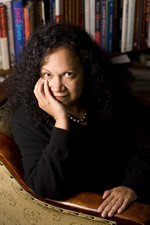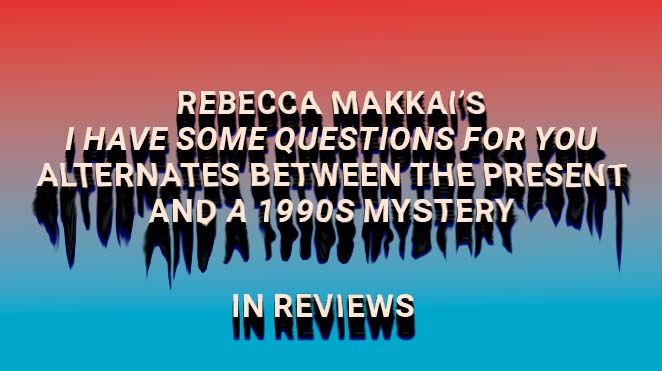July 7, 2010 This has been a big week for Alice Randall, Adam Ross, Michael Sims, and Steve Stern, who are being featured in publications as diverse—and as geographically far-flung—as The New Yorker, Entertainment Weekly, and Garden & Gun.
 As the nation celebrates the fiftieth anniversary of the publication of To Kill a Mockingbird, arguably the most beloved American novel of the twentieth century, Nashville novelist Alice Randall remembers a day in 2001, when she opened her mailbox to find a letter from Harper Lee. The revered author was writing to thank Randall for a julep cup, which was itself a thank-you gift. Lee, along with other literary luminaries including Toni Morrison, Ishmael Reed, Pat Conroy, Shelby Foote, Arthur Schlesinger Jr., and Henry Louis Gates Jr., had sent letters in support of Randall’s first novel, The Wind Done Gone, a parody of Margaret Mitchell’s Gone With the Wind which the Mitchell estate had sued to suppress: “What you did took the rarest kind of courage; it won you the respect of all people of good will,” Lee wrote to Randall. “To go against the merely popular version of a cultural era is one thing; to take on a much-clung-to myth is awesome, like re-writing The Iliad.”
As the nation celebrates the fiftieth anniversary of the publication of To Kill a Mockingbird, arguably the most beloved American novel of the twentieth century, Nashville novelist Alice Randall remembers a day in 2001, when she opened her mailbox to find a letter from Harper Lee. The revered author was writing to thank Randall for a julep cup, which was itself a thank-you gift. Lee, along with other literary luminaries including Toni Morrison, Ishmael Reed, Pat Conroy, Shelby Foote, Arthur Schlesinger Jr., and Henry Louis Gates Jr., had sent letters in support of Randall’s first novel, The Wind Done Gone, a parody of Margaret Mitchell’s Gone With the Wind which the Mitchell estate had sued to suppress: “What you did took the rarest kind of courage; it won you the respect of all people of good will,” Lee wrote to Randall. “To go against the merely popular version of a cultural era is one thing; to take on a much-clung-to myth is awesome, like re-writing The Iliad.”
Randall describes the letter—and her own reaction to To Kill a Mockingbird—in an essay for this month’s Garden & Gun: “I was born in 1959. Mockingbird was published in 1960. I read it for the first time not long after reading Gone with the Wind. I have long divided the world into Scouts and Scarletts—and I have always wanted to be Scout. And for every year of my life but the first, Mockingbird’s very existence, reader by reader, thirty million strong, has made the world a better place for me and for mine, just as before I was born and for every single year of my life Gone with the Wind has made the world more difficult for people like me.”
In the end, Randall says, she remains in Harper Lee’s debt: “Not because she wrote to the court and then exchanged six letters with me over a decade. Before she knew of my existence, I knew of hers. Her words made me braver than I might have been from near to my very beginning.”
 Memphis novelist Steve Stern has his own complicated relationship with history. Ben Marcus, writing in The New York Times Book Review, falls all over himself to come up with enough superlatives for The Frozen Rabbi and for Stern himself, whom Marcus calls “the poet laureate of the Tennessee Jews.” This quirky and hilarious novel is also historically sweeping and wise, covering not only a hundred years of history but also the dangers that arise when history is forgotten. “Stern shows how tragically easy it is, after only one generation, to forget the struggles of your forebears, if you ever know about them at all,” Marcus notes. “It’s hard to feel entirely glad for the Karps when their epic struggles come to an end in Memphis, where the family is assimilated at last. Yet along with the difficult question of just what is lost when assimilation is gained, Stern also raises the hope that even the most unwitting among us cannot fully escape the passions of our ancestors.”
Memphis novelist Steve Stern has his own complicated relationship with history. Ben Marcus, writing in The New York Times Book Review, falls all over himself to come up with enough superlatives for The Frozen Rabbi and for Stern himself, whom Marcus calls “the poet laureate of the Tennessee Jews.” This quirky and hilarious novel is also historically sweeping and wise, covering not only a hundred years of history but also the dangers that arise when history is forgotten. “Stern shows how tragically easy it is, after only one generation, to forget the struggles of your forebears, if you ever know about them at all,” Marcus notes. “It’s hard to feel entirely glad for the Karps when their epic struggles come to an end in Memphis, where the family is assimilated at last. Yet along with the difficult question of just what is lost when assimilation is gained, Stern also raises the hope that even the most unwitting among us cannot fully escape the passions of our ancestors.”
Jess Walter in The Washington Post is equally impressed: “Among the wonders awaiting the reader of Steve Stern’s exuberant new novel, The Frozen Rabbi, is one of sheer logistics: How did he get all of this in here?” Walters writes. “The book’s 370 pages are packed to bursting with epic adventure and hysterical comedy, with grim poignancy and pointed satire, as Stern repeatedly shifts time and tone to craft a wildly entertaining tale of the 20th-century Jewish experience and the paradox of tradition.” He concludes: “Page after page, Stern embraces every outrageous possibility, in lush, cartwheeling sentences that layer deep mystery atop page-turning action atop Borscht Belt humor.”
 There’s nothing funny about vampires, even today’s metrosexual versions, but in contemporary culture they’ve strayed pretty far from their origins in European folklore. Crossville native Michael Sims sets the record straight with his new collection, Dracula’s Guest: A Connoisseur’s Collection of Victorian Vampire Stories, which has garnered the attention of The Los Angeles Times, and which the new issue of Entertainment Weekly (no link available) has included in its Best New Paperbacks list for summer. “Long before vampires were sparkly and romantic, they were actually scary,” the recommendation reads. “This collection brings together the Victorian era’s most chilling bloodsucker fiction.”
There’s nothing funny about vampires, even today’s metrosexual versions, but in contemporary culture they’ve strayed pretty far from their origins in European folklore. Crossville native Michael Sims sets the record straight with his new collection, Dracula’s Guest: A Connoisseur’s Collection of Victorian Vampire Stories, which has garnered the attention of The Los Angeles Times, and which the new issue of Entertainment Weekly (no link available) has included in its Best New Paperbacks list for summer. “Long before vampires were sparkly and romantic, they were actually scary,” the recommendation reads. “This collection brings together the Victorian era’s most chilling bloodsucker fiction.”
 Meanwhile, Nashville novelist Adam Ross continues his swing through all the national literary publications of note with Daniel Mendelsohn’s review of Mr. Peanut, Ross’s debut novel, in the July 12 & 19 issue of The New Yorker (no link available). Mendelsohn notes the book’s “ingenious compression, concealment, and looping architecture” and praises its “tremendous imaginative sympathy.” Despite his mixed review of the complex structure of the book, Mendelsohn ultimately concludes that “[t]he heart of this novel is the work of a writer with a strong natural talent who has chosen an old-fashioned subject (bourgeois marriage) and mastered an old-fashioned technique of bringing the subject to life (an emotionally observant realism).”
Meanwhile, Nashville novelist Adam Ross continues his swing through all the national literary publications of note with Daniel Mendelsohn’s review of Mr. Peanut, Ross’s debut novel, in the July 12 & 19 issue of The New Yorker (no link available). Mendelsohn notes the book’s “ingenious compression, concealment, and looping architecture” and praises its “tremendous imaginative sympathy.” Despite his mixed review of the complex structure of the book, Mendelsohn ultimately concludes that “[t]he heart of this novel is the work of a writer with a strong natural talent who has chosen an old-fashioned subject (bourgeois marriage) and mastered an old-fashioned technique of bringing the subject to life (an emotionally observant realism).”
With reviews ranging from Michiko Kakutani’s launch-date introduction in The New York Times to Scott Turow’s front-page rave on the cover of The New York Times Book Review, Ross himself is living in a state of amazement. “What more could you possibly wish for?” he asked in a telephone interview with Chapter 16. “I’m totally flattered and humbled by the fact that it’s been getting this exposure.” Of reading the reviews themselves, he says simply, “It’s been an education.”
To read a summary of the critical reception Ross has received so far, including links to Chapter 16’s own coverage of Mr. Peanut, please click here.





